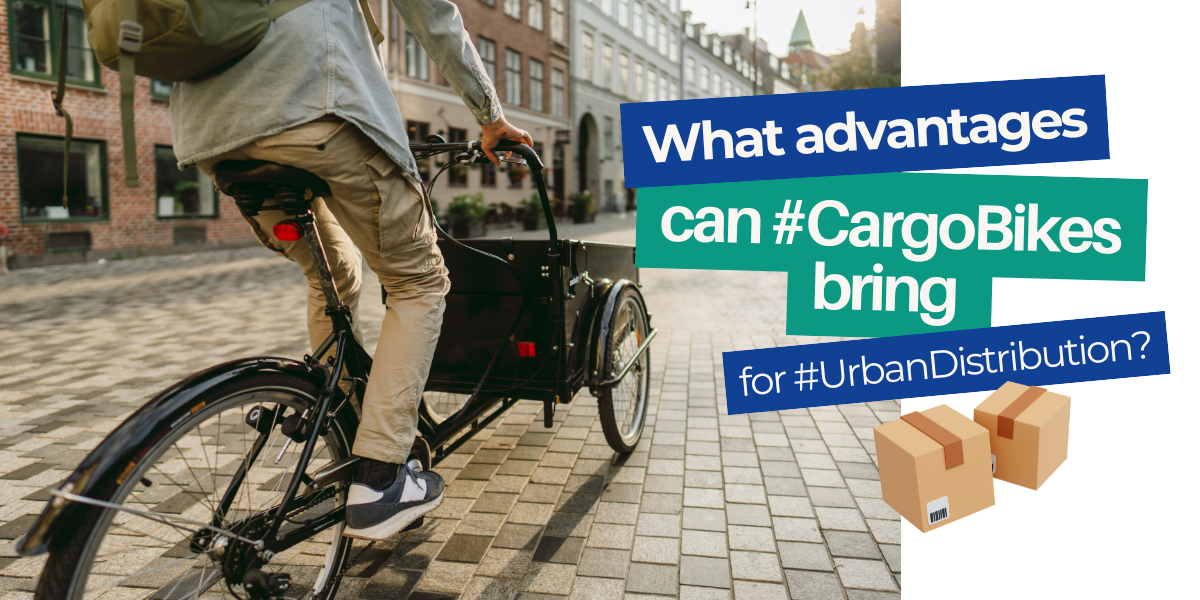The MED COLOURS project is pleased to launch its social column dedicated to the topic of resilient and sustainable urban logistics.
Once a month, via our social channels, we will suggest articles, insights and studies of particular interest to the topics related to the project, with the aim of increasing knowledge related to the topics, and stimulating debate and knowledge exchange, which are essential ingredients for the achievement of our project goals.
The column “MED COLOURS’ suggested readings for a more resilient and sustainable #UrbanLogistics” is inaugurated today with an interesting article on the benefits and advantages that Cargo Bikes can bring to Urban Freight Distribution.

In recent years, Cargo Bikes have emerged as champions of Last Mile Delivery, reshaping Urban Logistics and enabling a significant step towards cleaner, greener and more resilient cities. The integration of these vehicles, which are clearly more sustainable than traditional last mile delivery vans and enable a more efficient use of space in urban logistics, represents a new era for companies that want to optimise their operations and reduce their environmental impact.
However, the challenges are considerable: without a coherent national framework, municipalities struggle with complex regulations and infrastructural constraints. To try to respond to these issues, Arup and Tour de Force, drawing upon real-world case studies in Rotterdam, have produced the “Space for Cargo Bikes” report, a guide offering practical insights into how cities can successfully integrate cargo bikes into their urban logistics environment. This report is our reading suggestion of the month!
🔍 A brief summary of the report and the full report are available here: https://dutchcycling.nl/knowledge/blogs-by-experts/space-for-cargo-bikes/
Solutions such as Cargo Bikes and alternative and more sustainable delivery methods, which can make urban logistics more efficient and sustainable, will also be tested in the MEDCOLOURS project. MED COLOURS involves 6 cities (Livorno, Cesena, Thessaloniki, Koper, Lisbon, and Lyon) in the implementation of 5 #PilotActions and 6 #SustainableUrbanLogisticsPlans, with the objective of upscaling towards a new generation of logistics and urban planning that allows the transition towards decarbonised and smart cities.


